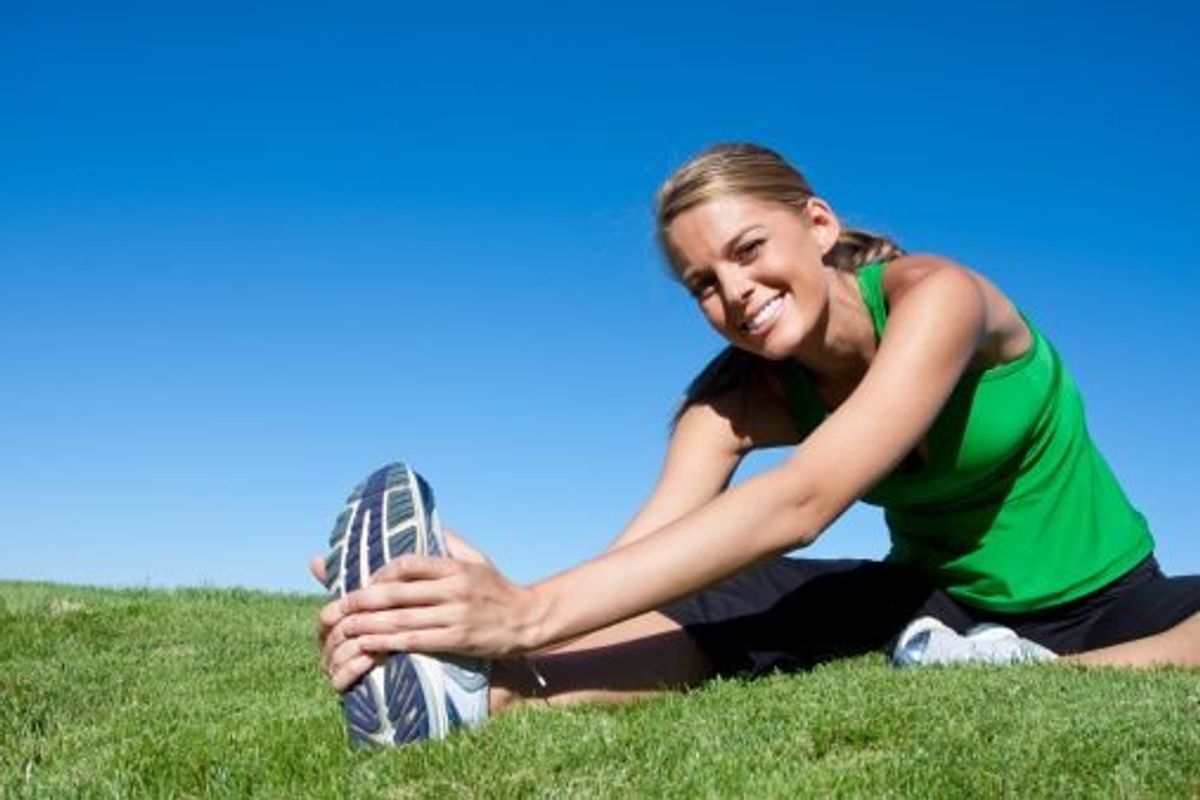Exercise combined with hotter air temperatures increase your core body temperature. Working out in hot weather can stress your body in many ways. Stay safe with these tips.
If you're anything like me, you let out a big "YAY!" when the warm temperatures finally arrive after a long, cold winter. (Didn't it feel like it would never end?) You revel in the hotter, longer days of summer. And you long to be outside for as long as possible, knowing that those glorious days will pass in a flash.
You might be stuck indoors working all day, but taking a break for fitness can give you an opportunity (or an excuse!) to sneak some outdoor time into your schedule. But what about the heat? Can exercising in high temperatures put you in danger? Heat and humidity can wear you down, so it's important to take some precautions.
MORE: How to Safely Sweat it Out in the Summer
Know when to ease up. It's likely your intensity level will be lower outdoors in the heat, especially if you're not accustomed to working out in higher temperatures. "If you normally run, walk or jog. If you're a brisk walker, slow it down," says Diane Fruge, M.D., associate medical director at Pritikin Longevity Center & Spa in Miami, Florida. As your body adapts to the heat, you can gradually increase both the pace and length of your workout.
Avoid the hottest part of the day. Try to get out to before the sun becomes too strong, or go out later in the day - which is easier in the summer, when days are longer. Typically, the hottest times are between 10 a.m. and 4 p.m. A spray bottle with a fan attached, filled with ice cold water, can help cool the surface of your skin if you get overheated. So can a swimming pool or lawn sprinkler!
More: Pool Exercises That Won't Embarrass You
Dress wisely. Summer is not the time for black clothing, and that's not just from a fashion perspective. Dark colors absorb the heat, so opt for lighter, cooler colors, like whites or this season's hottest colors (that's in fashion terms, not literal terms!) like hot pink, emerald green, tangerine, lemon yellow and turquoise. And while you're at it, save those heavyweight, tight-fitting fashions for another time: wearing loose clothing will allow the air to circulate over your skin, keeping you cooler, says Fruge.
Work out with a friend. The Centers for Disease Control and Prevention (CDC) recommends a "buddy system" as a good way to monitor your reaction to heat, since heat-induced illnesses can bring on confusion or collapse. Make sure you and your buddy know the warning signs: muscle cramps, nausea or vomiting, weakness and headache.
MORE: Know the Symptoms of Heat-Related Illness
Stay hydrated. We tend to lose about 2 to 3 percent of water during typical exercise and activity, especially on hot days, says Fruge. She suggests drinking 8 to 10 ounces of water every 20 minutes during exercise, followed by at least another 8 ounces after we're finished. (If you don't like plain water, a great alternative is Hint Water, a fruit-infused, all-natural water with zero calories and no added sugars, artificial sweeteners or preservatives.) Or, munch on some fruit or veggies (they contain water, too), like apples, oranges, carrots or celery sticks. The Mayo Clinic cautions that you should not wait until you're thirsty to drink. If you're exercising at a high intensity or longer than one hour, they suggest drinking a sports beverage instead of water, which can replace any sodium, chloride and potassium lost through sweating.
Remember the sunscreen. In addition to being harmful to your skin and health, sunburn can decrease your body's natural ability to cool itself.







